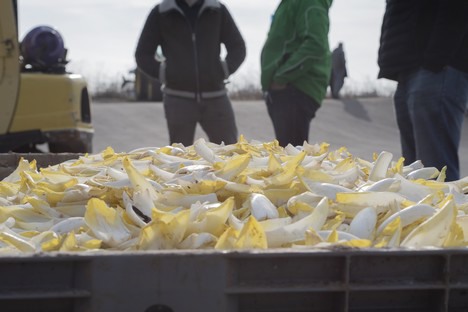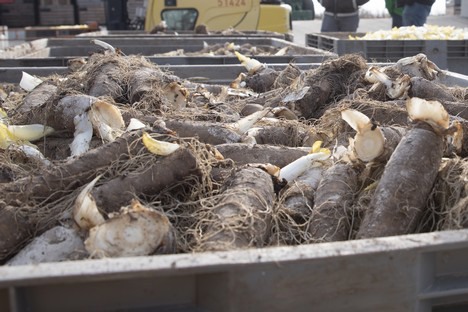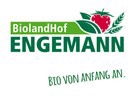Despite inflation and cost increases, the company said it had a strong sales season overall for organic chicory. "In January as well as February, marketing was a bit slow, which is probably also partly due to inflation and consumer reluctance to buy. In line with the lower demand, we then pushed roots ahead of us in the forcing department, which in turn led to a shortage of goods at the end of February. However, this has leveled off again, so that we are currently observing extremely stable sales," says Fabian Borgwald, buyer and seller at the organic wholesaler Engemann, based in Willebadessen-Eissen.

This year, one can fall back on an abundant root harvest, Borgwald continues. "Unlike other years, we have not had to source any roots elsewhere so far. Due to the good climatic conditions during cultivation, the roots could be harvested and stored in good condition overall. This is ultimately noticeable in the pleasing harvest and the qualities in the forcing department. There is also continuous demand, which may be due to the fact that imported lettuce has been scarce and expensive. Normally, we stop the forcing around mid-April: This year, due to the good root harvest and continued high demand, we will be able to market regional chicory two months longer, i.e., into June."

With a costly product like chicory in particular, however, the ubiquitous cost increases are making themselves felt, Borgwald confirms. "Not only wages, but also logistics and cold storage costs are putting significant pressure on our business. Fortunately, we were able to negotiate a price adjustment in December, which is why we are now about 20 percent above last year's level." To what extent the increase in inflation will affect organic sales in the process is difficult to grasp, according to Borgwald. "We continue to assume that classic organic customers will still buy from specialty retailers."
Over the past few years, sales of organic chicory have remained relatively stable, Borgwald further concludes. "The clientele continues to remain stable and consumption trends are rather less observable. In terms of packaging, organic chicory is still predominantly offered in bulk. We have merely switched from 4-kg to 2-kg boxes: Although this involves a little more effort for us as a supplier, it speeds up the throughput at the POS, which is why there are fewer markdowns on the bottom line."
Images: A. & K. Engemann GbR
For more information:
Fabian Borgwald
A. & K. Engemann GbR
Zum Südholz 11
34439 Willebadessen-Eissen
Tel.: 05644-98111-31
Fax: 05644-98111-69
Email: f.borgwald@engemann-bio.de
www.engemann-bio.de
